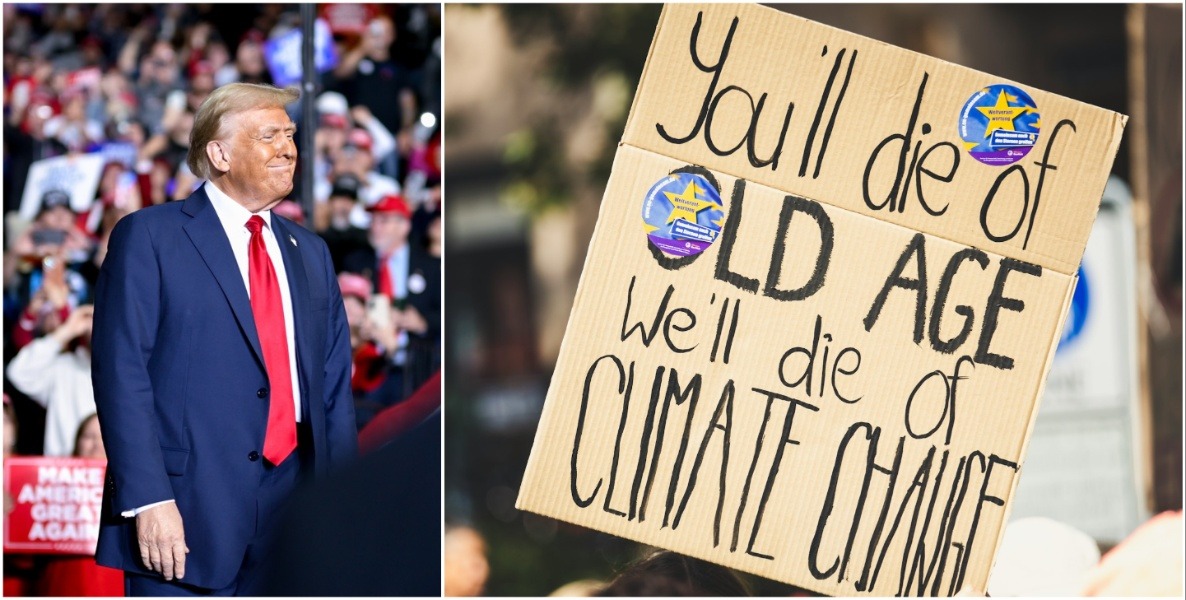Gen Z voters in Pennsylvania will help decide this election. But does Gen Z fully grasp what a second Trump presidency means for them? How can anxious parents and educators help young voters understand the enormous stakes, without seeming paternalistic and out of touch?
This question is on my mind this October, as I teach political theory at a selective liberal arts college in battleground Pennsylvania. I have always refrained from taking partisan sides in the classroom. I give students tools for thinking critically about politics so they can make independent and informed decisions.
But this election cycle is different. The future of American democracy — the political community most of my students call home — may well be at stake. “Non-partisanship” just doesn’t meet the moment. Educators need a different language to reach young people and communicate the urgency so many of us feel.
Gen Z is a receptive audience. Despite the cliché of a sheltered, disengaged generation glued to electronic devices, my students are politically active. After years of Covid isolation, they crave face-to-face community. They don’t shy from politically sensitive topics: racial justice, gender equality, the Israeli-Palestinian conflict. But they are also more open-minded, and less doctrinaire, than the “woke cancel culture” stereotypes would have you believe.
Democracy is the foundation on which robust policy debates, over issues like Gaza, are even possible.
My students nonetheless have a profound disadvantage: Their formative years coincided with the rise of MAGA. They have only vague memories of Obama and no memories at all of the pre-Trump GOP. Even students who detest Trump’s policies on immigration or abortion, for example, have resigned themselves to his norm-breaking behavior, “business as usual.” They are more cynical, I fear, and numb to the profound threats on the horizon.
How to convince young voters that Trump is an existential threat to their future? Here, I think an analogy with climate change proves powerful. Young adults are notoriously fixated on climate change, which they see through the prism of generational justice. They believe that action or inaction on climate policy will impact their generational trajectory for years.
A similar frame should be used this election cycle. Democracy is more than a system of periodic elections. Democracy is our collective home, the shelter that protects citizens from profound political risks, and can be (at its best) a source of belonging, civic friendship, and joy through cooperation.
Donald J. Trump is, in every possible sense, a homewrecker. Each lie, each conspiracy theory, every descent into fear-mongering and “enemies within” rhetoric, represents another “carbon emission” for a democracy under strain. Our ecosystem can withstand a lot, but there is a breaking point. And the breaking point is approaching.
Many Americans discount such warnings, just as they discount the warnings of climate scientists. As a political scientist who has devoted my life to studying democracy, I assure you the warnings are real. They are not exaggerations spun by the liberal media, or symptoms of “Trump derangement syndrome.” Donald J. Trump truly is an existential threat.
Democracy is an entire ecosystem. Democracy is our collective house, the foundation in which our political lives become meaningful. Democracy is the shelter that protects citizens from profound political risks.
Gen Z has the most to lose if the ecosystem falters. Each of the political “carbon emissions” discharged by Trump and his extremist MAGA allies jeopardizes the democratic future this generation wants and deserves.
Young progressives, you’ve expressed frustration about aspects of the Biden-Harris agenda. I commend you for asking tough questions of our leaders. But compromises are also necessary in politics, and no citizen can abdicate their responsibility for protecting our democracy. Democracy is the structure through which robust policy debates, over issues you care about, are even possible.
Young conservatives, you are tired of liberal orthodoxy on campus and crave intellectual diversity. I sympathize, it’s not easy to be a conservative on elite college campuses today. But you must move beyond the ravages of the Trump era to rebuild a responsible, intellectually serious movement; a conservatism which inspires young people around loftier aims.
And to the rest of my students, who constitute the silent majority: Democracy is your house too. Something worth fighting for. Vote for the candidate who will fight to keep that house livable in all seasons of your life. Refuse to normalize our descent into the political abyss, and fight back. Democracy is counting on you.
Gordon Arlen is a visiting assistant professor of political science at Swarthmore College.
The Citizen welcomes guest commentary from community members who represent that it is their own work and their own opinion based on true facts that they know firsthand.
![]() MORE ON THE 2024 ELECTION
MORE ON THE 2024 ELECTION




